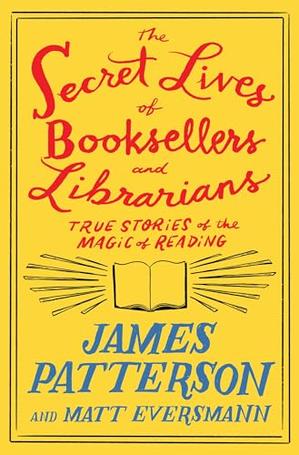Patterson, Eversmann, and Mooney gather first-person testimonies from independent booksellers (including author Judy Blume, who started her Key West store when she was 78); booksellers at chain stores like Barnes & Noble; and school, college, private, and public librarians from around the U.S. and Canada. They reminisce about their early discovery of books, their passion to become a librarian, or the unexpected opportunities that gave them a chance to work in a bookstore and, for some, to own one. Despite the title, few of the contributors have had a secret life. Some, though, have unexpected backgrounds: One is the daughter of Holocaust survivors, who named her bookstore after a grandmother who perished in a concentration camp. Several are military veterans. Many became a librarian or bookstore owner after a different career—in real estate, as a newspaper reporter, or, in Blume’s case, after 50 years as a successful writer. All have upbeat, inspiring things to say about connecting books and readers, and they express real concerns about the “wildly dangerous” movement to ban books. Books, they know from firsthand observation, can change lives. A librarian in charge of jail and prison services at Rikers reveals, “[O]ne of my favorite programs is Daddy & Me, a workshop that gives incarcerated fathers the skills to encourage early literacy in their children.” The youth services program director of the Cleveland Public Library describes its system’s offerings: “Beyond organizing book and culture events, the youth services department is also a resource center for parents and educators, children and students, providing free lunches and after-school tutoring at all our branches.” The librarian at Houston’s Holocaust Museum runs a children’s story hour. All testify to the extraordinary camaraderie among bookstore owners and the deep satisfaction of creating a vibrant community for readers.

